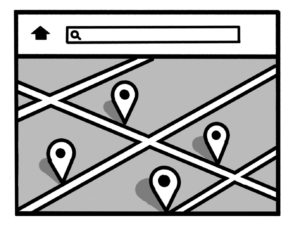
As an entrepreneur, you know time is your most valuable resource. You only have so much of it and there’s no way to make it grow. That’s why your personal productivity is so important—finding ways to make the most of your time can help you grow your business and allow you more freedom and personal time, which is in short supply.
There’s another aspect to the importance of productivity as an entrepreneur. Your time is not only valuable to you, but also important to your business success. In fact, your time is possibly the most valuable of anyone in your company. You’re the creative vision behind the business, and your work can’t be accomplished by anyone else. Yet if you’re anything like most of the entrepreneurs I know, you’re constantly getting drawn away from your important work—work that only you can do—to take care of crises, respond to clients and employees, answer questions, and complete urgent tasks that don’t ultimately create more value for the business.
By eliminating some of these distractions and maximizing your productivity, you can accomplish more and free up time to do what you choose rather than what’s demanding your attention.
1. Start by identifying the key daily and weekly tasks and how you can become intentionally productive. This does not mean you can get away with creating a traditional task list. After all, how often do you actually cross off everything on your daily task list? Often? Yeah, I didn’t think so.
While a task list can be a great tool to get the clutter of everything you need to do out of your mind and on paper, they aren’t overly effective as a time management tool. The problem with a traditional task list is that all of the tasks are evenly weighted, even though some are probably much more important than others. It doesn’t distinguish priority beyond perhaps a simple order you plan to tackle the tasks.
Instead of writing a single list of tasks, start by writing down your goals for the week. Next, extrapolate what tasks need to be accomplished on which days to achieve those goals. (You can extend this to months and even the year as well, but it’s a good idea to practice by starting small.) Prioritize the tasks you need to accomplish in the day. Use columns to separate the most important tasks from the less important ones. You only need two columns, but you can also try three: one for your most important tasks, one for things you’d like to get done, and one for optional tasks if time allows.
In the first column, place your most important tasks—the things you must accomplish today. Choose only three tasks to go in this column or it will get out of hand. This helps you be more realistic with yourself about what’s really most important and helps you stay focused. If you finish those three things, great, you can move on to your less important tasks or even tomorrow’s most important tasks if you’re really on a roll. But there’s no point putting things on the list you won’t be able to achieve—it will only mess with your schedule tomorrow. And limiting your main tasks to just three will improve your focus throughout the day as you think about what you have left to accomplish.
2. Understand your most productive work style. It’s important to know the hours you focus the best and what tasks you need to schedule without interruptions. Additionally, don’t plan to spend more time on a task than you know is possible for you. The human brain can concentrate deeply for 90 minutes before it needs a break, but you may find you’re able to be efficient for up to four hours at a time, at which point you’ll need an even longer break. When tackling tasks that require a great amount of mental work, four hours is a good amount of time to shoot for in a day, and rarely is more than six hours sustainable. People who work mentally demanding jobs tend to find that more than six hours a day of concentrated mental labor is difficult, and many report that four hours a day is best for peak performance.
Tasks which fall outside those four to six hours can be tasks such as meetings or coaching team members rather than tasks focused on moving the growth of your business forward.
3. Block out time to focus and time to accomplish less intense tasks.
I like to start by blocking out time for deeply concentrated work, then build time to take care of smaller tasks, where I have to shift my focus every 10-20 minutes. By separating these time blocks, I keep myself from being distracted by smaller tasks. That may mean only responding to emails twice or three times a day, but it will help you become more productive overall.
Beyond just time blocking, I recommend separating tasks as much as possible. If you can physically distance yourself from your email, phone, or whatever might tempt you to take care of those small tasks, it will improve your focus immensely.
Utilizing time blocking strategies is why many people find they work part of the day most efficiently in a coffee shop or somewhere other than their office. If that’s not an option, close any unnecessary tabs on your computer, shut off your phone, turn off any notifications, and block out your calendar so you can’t distract yourself by the temptation to answer emails or take phone calls when you’re trying to focus. Make sure others know you aren’t to be interrupted during this time.
4. Outsource anything that doesn’t require your expertise. As I have shared before, time is incredibly valuable. You have specialized expertise unlike anyone else in your business, which means that there are many tasks only you can handle. How many things do you take care of on a daily basis that don’t truly need your level of expertise? How many emails do you answer that could be answered by someone trained with the right answers? Chances are there are plenty of tasks you could outsource or offload to someone else in your organization. You could train someone to keep track of your schedule, take meetings where you aren’t absolutely needed, and even declutter and manage your inbox. A good executive assistant or virtual assistant can easily make up for their salary in the amount of time it frees up for CEOs and executive team members to work on more important things. Think about it this way: is it costing your business more for you to do the task, or for someone else to do it?
With these tips well executed, you can improve your productivity to allow yourself more time for what’s most important, whether that’s the more creative aspects of your business or simply more personal time. Ultimately, you’ll be able to achieve more in a smaller amount of time, which will lead to growth for your business and constantly remind you to work on your business than in your business. It’s often easier said than done, but the prioritization leads to the accomplishment of bigger goals you can take to the bank.




